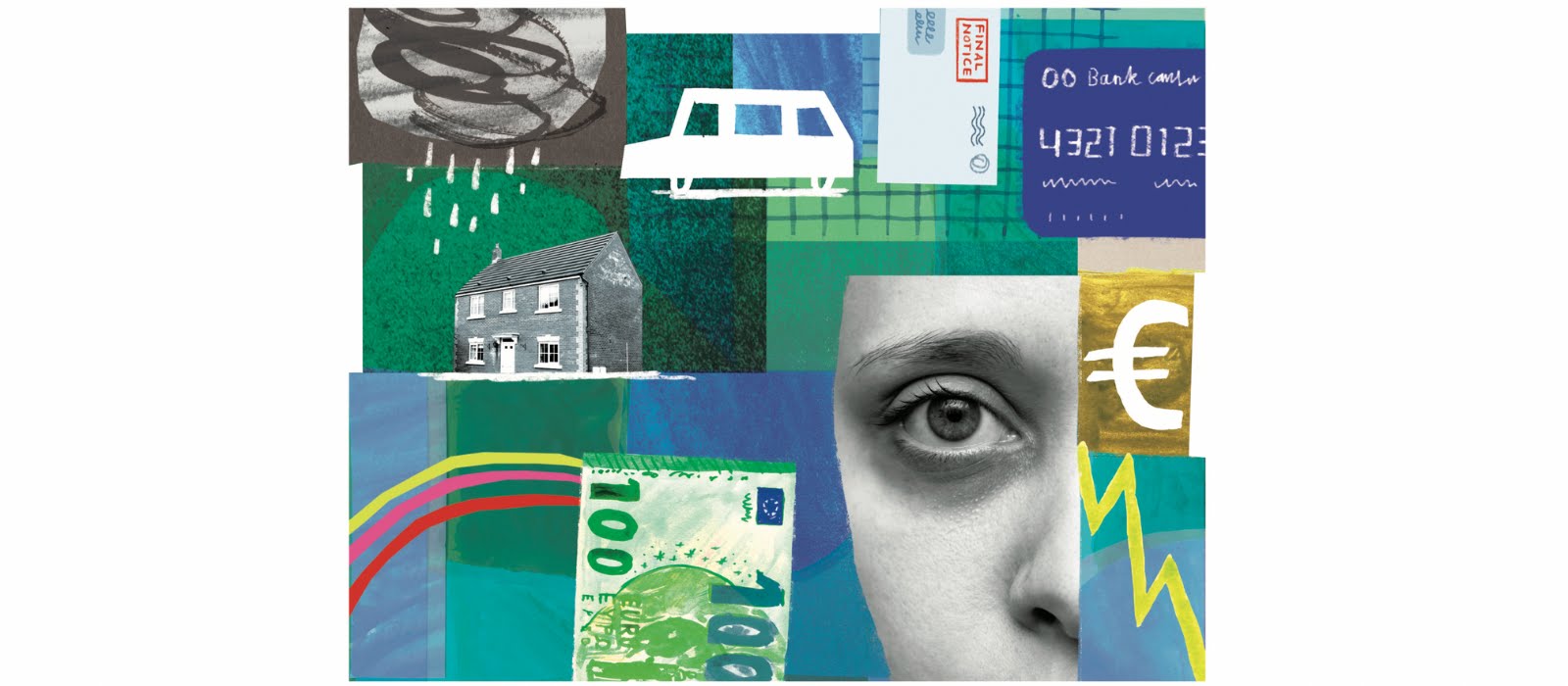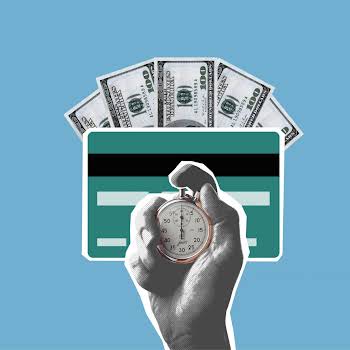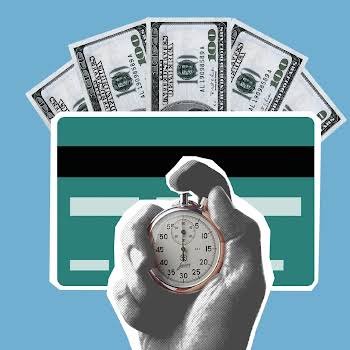Beat your money blocks: why you need to understand your financial behaviour
We all know we need it, and some of us just want more of it, but how do you actually feel about money? Katie Byrne digs deep into the complex emotional, and too often dysfunctional, relationship many women have with their finances.
Illustration by Anne O’Hara.
Eight years ago, in the midst of a self- improvement journey, Kate O’Dwyer decided to delve deeper into her complicated relationship with money. After years of being “completely money avoidant”, she wanted to face up to her financial future. As family members and friends secured their nest eggs, she wanted to understand why financial stability seemed to be eluding her. More than a simple financial assessment, the then-TV casting producer set out to unravel her underlying beliefs about money, and the uncomfortable feelings it often brought up. So she took out a pen and paper and wrote Money a letter.
“I wrote to money as if it was a person, and what I discovered was that I had no relationship with her,” she remembers. “She was flaky and she was never around. She was inconsistent and I just didn’t trust her. What I ultimately discovered was that me and money weren’t in a healthy relationship.”
After months of reading, research and self-enquiry, Kate fundamentally shifted her unconscious money beliefs and, today, the subject elicits very different emotions. She no longer avoids looking at her bank balance, her overall financial situation is much more secure, and she’s working in an entirely new field. Now a visibility coach and mentor, Kate helps women to boost their visibility in the workplace and raise their profiles online. And whether it’s salaries, hourly rates or savings, money always comes up as part of the conversation.
There is nothing as emotionally charged, deeply personal or culturally complex as money… What comes up when we’re talking about it? Is it shame? Is it confusion? Is it envy or anger?
UNEARTHING YOUR MONEY STORY
“There is nothing as emotionally charged, deeply personal or culturally complex as money,” says Kate. “There can often be a lot of complicated feelings and emotions when we bring up money, and that’s what I want to zone in on with my clients. What comes up when we’re talking about it? Is it shame? Is it confusion? Is it anger? Some of these feelings we don’t want to own, especially jealousy or envy.
“It’s not always what you’re doing about money,” she adds, “but it’s who you are being in relationship to it that reveals our inner money stories.” There was a time, not so long ago, when the financial-advice industry followed a fairly predictable formula. Income and expenditure was tallied and shortcomings were attributed to a simple matter of under-earning or overspending. Nowadays, a new wave of financial psychologists, therapists and coaches are digging deeper to help people understand why they don’t have the financial stability they crave. Focusing on the idea that money is emotional, and harnessing the latest research in positive psychology, they help their clients identify unconscious beliefs that might be blocking their financial goals, or past financial traumas that could be holding them back.
Nowadays, a new wave of financial psychologists, therapists and coaches are digging deeper to help people understand why they don’t have the financial stability they crave.
INTRODUCING THE FOUR BASIC MONEY SCRIPTS
While the field is still in its infancy, new ideas about money management are slowly gaining ground. Father-and-son financial psychologists Ted and Brad Klontz introduced us to “money scripts” in an academic financial study carried out in 2011. “Typically unconscious, trans-generational beliefs about money, [money scripts] are developed in childhood and drive adult financial behaviours,” they wrote, before outlining the four basic money scripts: Money Avoidance, Money Worship, Money Status and Money Vigilance.
A few years later, Kate Northrup, author of Money, A Love Story, explored the link between our relationship with money and our relationship with ourselves. “If you can’t see your value,” she wrote, “the world doesn’t give value back”. Financial psychology presents a new, more holistic way of approaching financial health, but it doesn’t have to be one or the other, notes Dublin-based money coach Anne-Marie Macken. A qualified financial advisor and accountant, Anne-Marie prefers to straddle both worlds when working with clients, and is as much an advocate for self-awareness as she is for standing order- savings accounts. “There are practical steps you can take to address your financial situation, but it’s also important to ask what’s driving the impulse to spend,” she says. “Is it status, is it filling a void, is it loneliness? It’s about bringing awareness to the moment, just by pausing and asking, ‘What’s really going on here?’” Anne-Marie saw a need for money coaching after her experience working in debt management following the housing crash in 2008. Many of her property developer-clients were severely impacted by the downturn, she says, yet some of them were able to bounce back. “The people who were able to get out of it were in some way able to retain a sense of optimism and find solutions,” she notes, “whereas others were almost paralysed by it – they couldn’t find any solutions…” Those who prevailed didn’t derive their identities from their bank balance, she adds, whereas others saw it as a personal failure and an almost catastrophic setback. The experience proved to Anne-Marie the role of mindset in money management and today, as a money coach, she helps people uncover their core financial beliefs and shift their money mindsets.
LOOKING AT OUR UPBRINGING
Anne-Marie says our upbringing ultimately shapes our relationship with money into the future. “If people grow up in a precarious financial situation, or with parents who were keenly aware of the shortage of money, that fear tends to stay with them when they grow up as adults.” But fear can manifest in different ways. “Some people who grow up like that will watch every penny, yet others will almost rebel against it and overspend… A typical belief might be ‘there is never enough money’, and that might be the evidence. But if you’re continuously thinking that, how does that make you feel, and how does that then translate into what you do?” Core money beliefs vary from person to person, she adds. For some, the issue stems from a lack of self-worth. “They might unconsciously think, ‘I don’t deserve to have money or nice things.’” Others may have an underlying belief that money corrupts, which they then struggle to reconcile with wealth accumulation. “I’ve worked with people who are really aware of social justice and poverty issues, and it’s almost like, ‘If I benefit from the system, am I losing my identity?’”

FINANCIAL TRAUMA
In cases where a potential client hasn’t dealt with a severe financial trauma, Anne-Marie recommends therapy ahead of coaching. “I’m talking about traumas with a capital T, for example the loss of the family home or suicide of a family member because of money issues – pretty hard-hitting stuff. If that trauma has been dealt with through therapy, then money coaching, which is more future-oriented, can work really well for that person even if their therapy is ongoing. If the trauma has not been addressed, then therapy to come to terms with the past may be required first before money coaching would prove suitable or ultimately effective.”
COUPLES FINANCIAL COACHING
While some untangle their relationship with money, others are examining the role that money plays in their relationships. Enter financial coaching for couples, another burgeoning field that takes a more holistic approach to money management. “Everyone has financial baggage and everyone has their own financial personality when they go into a relationship,” explains Dublin-based couples financial coach Morgan O’Connell of Arrow Coaching. “They’ve learned stuff from their parents, from their jobs, from managing their own money or getting burnt by the stock market… whatever it is, they come into a relationship with all of these layers underneath, and the other person might not necessarily know.”
Morgan helps couples negotiate the Venn diagram of their money personalities and identify financial flashpoints, such as Christmas time, birthdays and “large- expenditure events like buying cars and going on holidays”. Sessions tend to last for an hour at a time, during which he asks couples two key questions: “Do you think your financial situation with your partner is fair?” and “What do you expect from one another?”
“Some people might expect the other person to shoulder the finances 50/50. Some people might expect their partner to pay the mortgage because they are earning more money. Or you might have a person who owns a house already and another moves in – how do they negotiate who pays for what? Expectations need to be laid out from the outset,” he says. Truly balanced 50/50 splits are almost impossible to achieve, adds Morgan, but perceptions of fairness should at least be discussed. “I recently sent a questionnaire to 30 couples about money, and the overriding theme was that they don’t think the other person was treating them fairly, and that’s something that can get under your skin. You may not voice it, but if you feel someone is doing you an injustice, that can build up and cause resentment, and that’s very damaging.”
In other words, financial conversations are crucial, but that isn’t to say they’re easy. Being honest about money – whether it’s with yourself or a loved one – can be uncomfortable. And as much as we might like to overhaul our finances, mindset shifts don’t happen overnight. “It’s a constant process,” says Anne-Marie. “People might do the work but then something goes wrong in the business and the old fears come back. But even just being aware of your underlying beliefs around money is a massive first step.”

WHAT’S YOUR MONEY SCRIPT?
MONEY AVOIDANCE
Caught in a state of denial, anxiety and shame, Money Avoiders refuse to face their financial fears and often sabotage their own financial success. They struggle to manage a budget and tend to ignore financial statements, mounting debts and pension advice. According to Drs Brad and Ted Klontz’s research, Money Avoiders tend to be wealthier and more highly educated individuals who may fundamentally believe that they don’t deserve to have money.
MONEY VIGILANCE
Frugal and cautious, the Money Vigilant are laser-focused on their financial goals and spend only what they can afford. They set aside a certain amount each month for savings and they check their bank account daily. While they have smart spending habits in place, the Money Vigilant can derive a false sense of security from money and veer towards excessive budgeting. In the extreme, they can become penny-pinchers who struggle to enjoy their wealth.
MONEY WORSHIP
Money Worshippers believe that more money will ultimately lead to more happiness. However, thanks to the “hedonic treadmill” theory, their pursuit of money never quite satisfies them. According to the Klontzs’ research, Money Worshippers are prone to buying things in an attempt to achieve happiness and are more likely to put work ahead of family. They are also more likely to give or loan money to others, even though they can’t afford to do so.
MONEY STATUS
Equating self-worth with net worth, Money Status seekers spend money to achieve a sense of social superiority. They signal their wealth through conspicuous consumption and luxury status symbols, which can put them at risk of overspending. The Klontzs’ research found that people in the Money Status category are more likely to come from lower socio-economic environments and households that traditionally gave a higher social standing to people with more money.
Illustrations by Anne O’Hara. This article originally appeared in the Summer issue of IMAGE Magazine.























